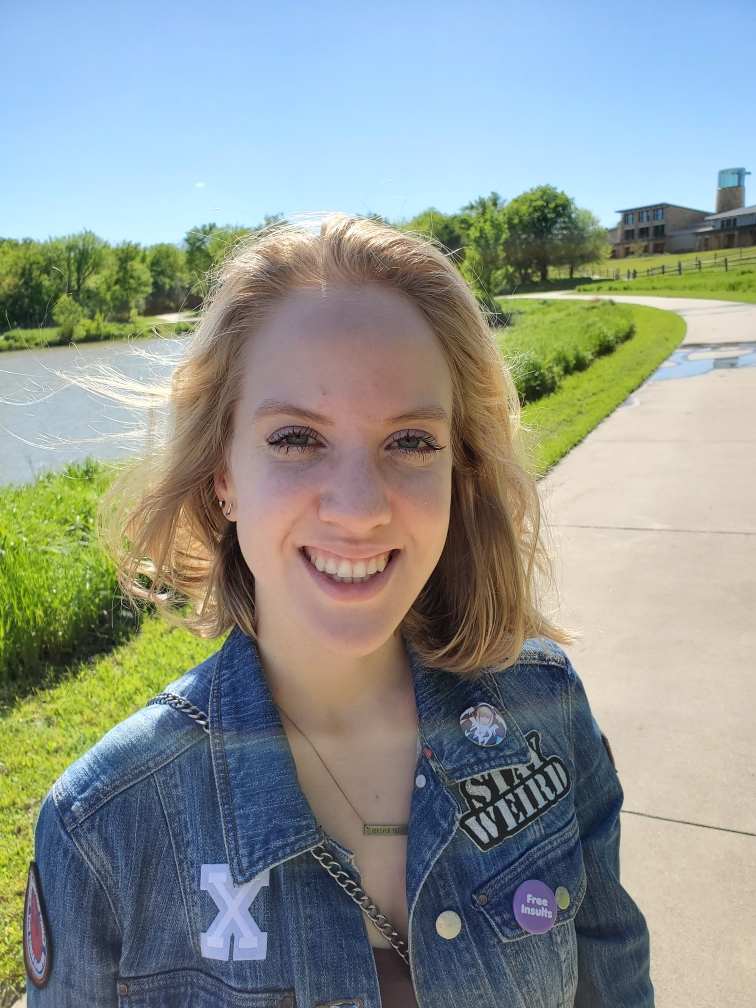I rarely have time to watch any television these days. If I have a free moment I’m simply laying in the silence of my room, journaling or hanging out with friends. Last week, however, I turned on my TV to find some background noise. I flipped on Netflix and found a show I’d put on my list and forgotten about. Diagnosis sucked me in and instead of being background noise, became my sole focus.
Diagnosis is based on a column in the New York Times in which Dr. Lisa Sanders presents bizarre, unsolved and rare cases in the medical field and calls on the help of the crowd. The people who respond are doctors, specialists, students, people with similar or identical symptoms or people who know others with them. Some that write or call in are just enthusiasts who like researching medical cases. Dr. Sanders has been writing this column since 2002, and the show follows up with people before, during and after obtaining answers to their pleas for outside help.
Each episode follows one individual and their family throughout the process. As the documentary tells the family’s story, it also shows the healthcare side of how doctors deal with rare and complex cases. Patients rarely fit into one box for a diagnosis, showing all expected symptoms exactly how they are “supposed” to. This can frustrate healthcare teams greatly and cause them to write patients off or tell them to find another doctor. The nonchalance expressed by doctors as patients tell these stories is frustrating and hard to hear.
One of the stories that really got to me was the story of Kamiyah, a six-year-old girl suffering from what appears to be short bouts of seizures where she is completely paralyzed, described by her parents as a “drop.” She freezes in whatever she’s doing, stops talking or walking or playing, and leans over. A few seconds later she’s back, giggling and picking up right where she left off. It’s a condition that leaves her mother terrified, always worrying about her safety and any dangers Kamiyah may be in if left alone when she seizes. Her mother consulted the NIH (National Institute of Health) about Kamiyah’s condition, who agreed to put her through a series of diagnostic tests and scans to decipher what she was going through. She didn’t hear anything back from the NIH until two years later when Dr. Sanders called, asking about the results that they had but had never sent back to the family. Even though they had nothing conclusive from the studies, Kamiyah and her parents were left in the dark for so long that they began to lose hope, and as a result, her mother began to lose trust in the system that was designed to keep her family healthy. A similar situation occurred with sixteen-year-old Lashay and her family, as no doctors could give them a specific answer to why Lashay isn’t able to keep any food or fluids down, and as a result, have not pursued any further treatments due to being told too many times that Lashay’s issue was psychosocial, not physiological.
In another episode, a man named Willie suffers from memory loss, seizures and mood swings. After twelve trips to the Mayo Clinic, countless brain scans and consultations, doctors had no idea what was going on with him. He was denied for disability at work, his wife working to make sure their family is clothed and fed and living out of a mobile home that they had to sell the rights for in order to pay for more consultations. Willie and his family are living without medical insurance, getting no help for his disability and also receiving no medical compensation from the VA, even though Willie served for eight years.
These episodes show how diverse and varied the population of healthcare is. There are people along the spectrums of socioeconomic status, ability, identity, race, sexuality, religion – and as time passes, these variances will grow and be more and more prominent. I want to make this distinction to point out that in the end, we’re all human and deserve the basic right of safety and health. Doctors who write off teenagers with rumination syndrome as bulimic or don’t take the pain and complaints of a black woman seriously (Ann, episode 7) don’t deserve to remain in practice for ignoring them or not bothering to send the individual to a specialist for another consultation.
These stories hit me hard as a woman going into healthcare. It showed me just how important it is to listen to the patient and their support systems, to really take into account everything that they are saying to help cure them or help find a solution as quickly as possible, so they may have a more normal existence. It also inspires me to stand up to the injustices happening in healthcare specifically and call out those who are not performing their job holistically or to the fullest extent to help the patient regain a sense of normalcy in their lives. Included in this is admitting when we’re wrong or really don’t know the answer, as Dr. Sanders does. She doesn’t have all of the diagnoses in the world burned into her brain – no one does! But she’s not afraid to call on the crowd and ask for their help in solving these mysteries, for the good of the patient and their families.
In short, Diagnosis models every principle healthcare seeks to maintain and how good humans really can be. It shows the power of community and shared knowledge, and perhaps the future of healthcare including more remote and widespread care for more patients around the globe, so we can tackle these rare and challenging diseases and disorders to make sure everyone has the same accessibility to health.



